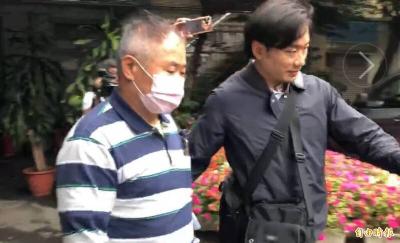A preview of the regulations to implement the Patient Right to Autonomy Act (病人自主權利法) is to be published by end of this month, the Ministry of Health and Welfare said yesterday.
Touted as the first of its kind in Asia, the legislation grants terminally ill people and some other patients the right to refuse life-sustaining treatment.
It was signed into law by then-president Ma Ying-jeou (馬英九) in 2016.
Former Chinese Nationalist Party (KMT) legislator Yang Yu-hsin (楊玉欣), one of the bill’s advocates, yesterday called a news conference at the Legislative Yuan in Taipei, attended by Democratic Progressive Party (DPP) Legislator Chen Man-li (陳曼麗) and ministry officials, to discuss the law and its regulations.
Sports commentator Fu Da-ren (傅達仁) went to Switzerland to commit assisted suicide because there is no legal euthanasia in Taiwan, Chen said, adding that the act would partially address the issue.
Conflicts between patients and medical professionals over the extent of patient autonomy could become an issue and the government has to implement the act with care, she said.
Yang said that over the past 20 years, she had interviewed numerous terminally ill patients and their family members, and virtually everyone brought up the issue of suicide.
“Rather than seeing medicine as a tool for the indefinite extension of life that had lost its meaning, medical care should be more empathetic and help patients complete their lives with dignity,” she said.
The patient’s autonomy in the patient-doctor relationship should be protected, she said.
Lawmakers from across the political divide have worked together to draft the legislation and they are drafting regulations that would better implement the policy aspects of the law, she said.
The ministry in April published guidelines on living wills regarding medical treatment for patients and institutions, said Liu Yueh-ping (劉越萍), an official at the ministry’s Department of Medical Affairs.
The ministry also expects to complete the draft regulations for implementing the law and publish them before the end of the month, she said.
The ministry this year plans to establish one advanced healthcare directive consultancy for each of the nation’s 22 counties and cities, which would open their doors on Jan. 6 next year, when the law goes into effect, Liu said.
Social worker Yeh Yi-lin (葉依琳) said her institution, Taipei City Hospital, is the first of seven hospitals to participate in the act’s pilot program that began in 2016 and has so far enrolled 240 members.
Most of the men that participated in the program are aged 50 to 79, while the women are aged 40 to 69, she said.
In the draft regulations, medical institutions are responsible for giving advice regarding living medical wills, the cost of which is mostly not covered by the national health insurance, which could impede the law’s implementation, Yeh said.
“It is a right and a responsibility for each person to decide how to die and it is my recommendation for the government to create a National Health Insurance-funded credit system for advanced medical care planning,” she said.

Taiwan would benefit from more integrated military strategies and deployments if the US and its allies treat the East China Sea, the Taiwan Strait and the South China Sea as a “single theater of operations,” a Taiwanese military expert said yesterday. Shen Ming-shih (沈明室), a researcher at the Institute for National Defense and Security Research, said he made the assessment after two Japanese military experts warned of emerging threats from China based on a drill conducted this month by the Chinese People’s Liberation Army’s (PLA) Eastern Theater Command. Japan Institute for National Fundamentals researcher Maki Nakagawa said the drill differed from the

A fugitive in a suspected cosmetic surgery fraud case today returned to Taiwan from Canada, after being wanted for six years. Internet celebrity Su Chen-tuan (蘇陳端), known as Lady Nai Nai (貴婦奈奈), and her former boyfriend, plastic surgeon Paul Huang (黃博健), allegedly defrauded clients and friends of about NT$1 billion (US$30.66 million). Su was put on a wanted list in 2019 when she lived in Toronto, Canada, after failing to respond to subpoenas and arrest warrants from the Taipei District Prosecutors’ Office. Su arrived at Taiwan Taoyuan International Airport at 5am today on an EVA Air flight accompanied by a

A 79-year-old woman died today after being struck by a train at a level crossing in Taoyuan, police said. The woman, identified by her surname Wang (王), crossed the tracks even though the barriers were down in Jhongli District’s (中壢) Neili (內壢) area, the Taoyuan Branch of the Railway Police Bureau said. Surveillance footage showed that the railway barriers were lowered when Wang entered the crossing, but why she ventured onto the track remains under investigation, the police said. Police said they received a report of an incident at 6:41am involving local train No. 2133 that was heading from Keelung to Chiayi City. Investigators

The Keelung District Prosecutors’ Office today requested that a court detain three individuals, including Keelung Department of Civil Affairs Director Chang Yuan-hsiang (張淵翔), in connection with an investigation into forged signatures used in recall campaigns. Chang is suspected of accessing a household registration system to assist with recall campaigns targeting Democratic Progressive Party (DPP) city councilors Cheng Wen-ting (鄭文婷) and Jiho Chang (張之豪), prosecutors said. Prosecutors yesterday directed investigators to search six locations, including the Chinese Nationalist Party’s (KMT) Keelung office and the residences of several recall campaign leaders. The recall campaign leaders, including Chi Wen-chuan (紀文荃), Yu Cheng-i (游正義) and Hsu Shao-yeh